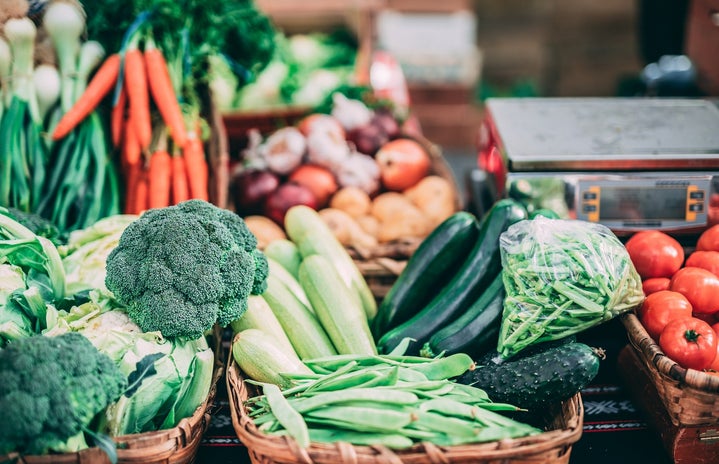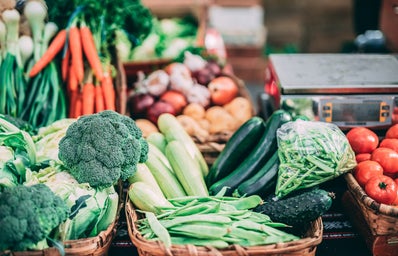Since I no longer live in a dorm room, I have not had the luxury and ease of enjoying dining hall delicacies as I did last year. I now zip through grocery store aisles while looking for both healthy, appetizing and cost-effective options. Within the first few weeks, I have found myself straying away from meat and instead substituting for more fruits, vegetables and grains. In the past, I tried to adopt a more vegetarian lifestyle but never stayed overly consistent with it. Now, since I have more autonomy in the kitchen, I am beginning to understand both the health and environmental benefits of reducing my meat intake.
After not having any meat in the first week, I was feeling a lot less bloated and overindulged than I typically had in the past. I felt overall healthier and more motivated to exercise since every meal no longer felt like a Thanksgiving feast. According to the Mayo Clinic, after vegetarians and flexitarians (people who largely consume a plant-based diet but occasionally eat meat) reduce their red meat consumption, they have a lower risk of heart disease, stroke and diabetes. Although meat does act as rich sources of protein and iron, there are a multitude of substitutions where you can still meet the Daily Value recommendation. This includes low-fat milk, eggs, tofu, lentils, beans, nuts and a variety of other options.
Related Article: Health Benefits of Almonds
Some of the meals that I have been cooking for myself are an egg, cheese and avocado sandwich on whole wheat toast, quinoa with vegetables and zucchini pasta with black beans and almond-milk mozzarella. In addition, I normally snack on fruit like bananas, grapes, apples and berries, as well as unsalted cashews. I typically have leftovers when I cook as well, so each meal can sustain itself until the next day.
In addition to the above health benefits, there are many environmental benefits as well. Breeding livestock for consumption requires an immense amount of land, water and additional resources. According to CGIAR, a research institution that focuses on climate change, agriculture and food security, livestock contributes to 14.5% of the world’s total greenhouse gas emissions. In addition, The Guardian states that for one pound of beef, more than 20,000 pounds of water is required while it just takes 60 pounds of water to produce one pound of potatoes. As a result, by eating a vegetarian diet, you can reduce your carbon emissions by 2.5x when compared to that of a meat diet.
Related Article: The Benefits of Being Vegan and Vegetarian
After taking a sustainability class last semester, I really began to understand how vegetarian and vegan diets positively impact the environment. For now, I am only eating meat once every two or three weeks, and that is typically only when I get carry out from a restaurant. By not centering my meals around meat everyday, I now see the health, environmental and cost benefits first hand.



